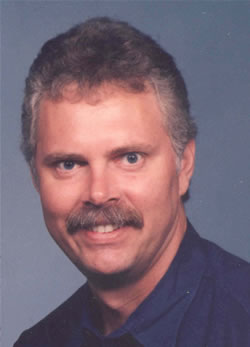 For John Peterson, being a member of the MATE Center’s National Visiting Committee (NVC), or advisory board, is an opportunity to influence and learn from colleagues in other areas of marine technology. A former navy diver, Peterson is the general manager of Oceaneering Reflange, a division of Oceaneering International, Inc. that provides high-pressure piping connectors for critical-service applications in the hydrocarbon processing, chemical, aerospace, and power industries.
For John Peterson, being a member of the MATE Center’s National Visiting Committee (NVC), or advisory board, is an opportunity to influence and learn from colleagues in other areas of marine technology. A former navy diver, Peterson is the general manager of Oceaneering Reflange, a division of Oceaneering International, Inc. that provides high-pressure piping connectors for critical-service applications in the hydrocarbon processing, chemical, aerospace, and power industries.
Based in Houston, Oceaneering provides services and hardware to customers in the oil and gas, telecommunications, aerospace, marine engineering, and construction industries, as well as government agencies. “As a member of the MATE Center’s advisory board, I represent the entire industry, not just my company,” Peterson said. “I try to make sure that the needs of all employers of marine technicians are appropriately addressed.”
Because the industry relies on academia to develop appropriate educational programs, Peterson values the opportunity to simultaneously learn from his colleagues in the academic environment and share his industry experiences with them. “The work that the Center does is important because it bridges the academic and business worlds,” he said. “My involvement with the Center has helped me gain an appreciation of how educational institutions operate and what their challenges are.”
"A former navy diver, Peterson is the general manager of Oceaneering Reflange, a division of Oceaneering International, Inc."
For example, said Peterson, the future of marine technology lies in its ability to reduce human intervention in areas where safety is compromised and costs can be reduced. “Smart underwater machines will be able to run tasks without direct human intervention,” he continued. “The marine technician’s role won’t be eliminated— but it will evolve to include more analysis, monitoring, and machine control and maintenance.”
This is precisely why educational institutions play such a critical role in developing the marine technology industry. Their role includes producing a more educated workforce and spearheading cutting-edge research, said Peterson. “The skills of a marine technician will have to evolve to meet the demand of new technologies, so academic institutions are evolving their programs,” he explained. “And in many cases, these new technologies are generated within the academic environment, and industry follows their lead.”
Peterson cited the Center’s student intern program as one of its outstanding achievements. “I’m very proud when I see a student from a local community college get placed at a company and turn that internship into a permanent job,” he added. “It’s a boost to the local economy.”
"The skills of a marine technician will have to evolve to meet the demand of new technologies, so academic institutions are evolving their programs"
Because Oceaneering operates the largest fleet of work class ROVs in the world, Peterson is also proud of the Center’s annual student ROV competitions. “There’s a good cross-section of industry and educational institutions involved in the ROV competitions,” he said. “Students are introduced to career opportunities they might not have considered before participating.”
The Center is valuable, said Peterson, because it provides the business world with an opportunity to reach out and embrace the academic community. “It’s an exciting time in our industry right now, and the MATE Center’s contribution promotes understanding and cooperation between academia and business,” he added.
<< Back to Profiles Start Page
|
|
